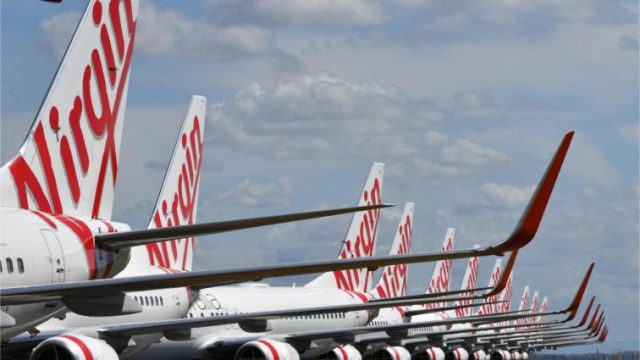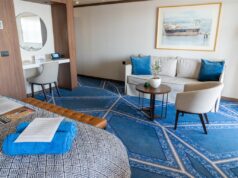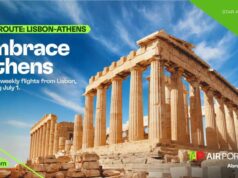Competition experts have warned that the biggest risk for a recapitalised Virgin Australia will be its competitor, Qantas, which could potentially flood the domestic market with capacity in the face of much diminished demand for air travel in the foreseeable future.
Creditors will meet next Thursday, when the accounting firm Deloitte’s appointment as administrators could face challenge from bondholders owed $1.8bn who fear they will receive a minimal return.
In a lengthy declaration sent to creditors, Deloitte laid out its history of work for Virgin and revealed it had so far billed $200,000 for consulting work on the coronavirus crisis, which was done before the administration appointment.
Virgin entered voluntary administration on Wednesday and is seeking to rapidly recapitalise the airline so it can restart operations as Australia’s second domestic carrier.
Its fate depends in part on what happens at the creditors meeting, where Deloitte will either be removed as administrator or confirmed in the role.
Insolvency industry sources said unions and creditors had sounded out rival firm KordaMentha, which was on a shortlist for the job alongside Deloitte and PwC but missed out.
KordaMentha has previously drawn support from unions to tip out incumbent administrators, but union sources were unaware of any approaches from the insolvency firm.
In a circular sent to creditors on Tuesday, administrators Vaughan Strawbridge, John Greig, Sal Algeri and Richard Hughes said they would ask for court approval to put off a second meeting of creditors, which the law normally requires to be held within 25 days of the first.
The extra time would be used to “negotiate with potential purchasers of Virgin”, the administrators said.
“Alternatively, it will give us time to negotiate with stakeholders to recapitalise Virgin, and further time will maximise the chances of Virgin continuing to trade,” they said.
Whatever happens to Virgin in coming weeks, both airlines will face a glut of capacity on their domestic services for the foreseeable future and almost no international traffic.
Since the onset of the coronavirus pandemic both airlines have cut up to 95% of their flights, leaving only a few operating between capitals. The federal government is also subsidising airlines to operate a skeleton schedule of flights overseas to bring Australians home.
The recovery will depend not just on the Australian government’s timetable to relax restrictions on travel but also on how the rest of the world tackles the pandemic. International travel could be stalled for two years or more.
This raises questions about whether either Virgin Mark 2 or Qantas could withstand a prolonged downturn in the industry without government support, despite the federal government so far ruling out a bailout for Virgin.
The major risk for Virgin Mark 2 would be Qantas flooding the market with cheap fares the moment restrictions on travel were eased, experts said.
The chairman of the Australian Competition and Consumer Commission, Rod Sims, said the regulator would work with the government on the competition arrangements for the airline industry as issues around Virgin become clearer.
He pointed out the ACCC now had greater powers to deal with abuses of market power that either have the purpose or effect of limiting competition.
“It’s silly to say we can’t have two airlines,” Sims said. “Sydney and Melbourne are both big cities by world standards and you have to fly between them, so I don’t buy the argument that we can only support one airline.”
The former ACCC chairman Allan Fels, who oversaw deregulation of Australia’s domestic airline market, said the government might find itself forced to intervene.
The first pressures may come if Virgin Mark 2 and Qantas decided to wind back regional and rural services and flights to major tourist destinations such as Cairns, leaving towns with little or no service.
Significant political pressure will come from MPs in these areas, mostly Nationals.
Fels also warned about the potential for Qantas to want to cut fares and drive up its yields once domestic air travel resumed.
“If Qantas finds itself really struggling will they be tempted to grab the whole market during the slowdown?” Fels asked.
But Fels noted that Qantas had accepted competition in the wake of Ansett’s collapse rather than the alternative of being regulated as a monopoly.
“Qantas was somewhat fearful after Ansett collapsed that it would regulated as a monopoly. I doubt they will be trying to drive Virgin out of the market,” he said.
But he said Virgin would clearly have to change its business model to avoid running up the losses of recent years.
Virgin would need to decide whether it wanted to be a full service airline and chase lucrative business customers, which was high-risk but high-reward, or whether it wanted to be a budget airline, Fels said.
Australia’s chequered history on fostering competition in the domestic airline industry also points to the importance of trying to recapitalise Virgin without it being dismantled and sold off in pieces.
Dismantling the airline, even if someone bought assets to start a new one, would likely lead to long delays, as the company negotiated for terminal access and applied for a new air operators certificate. The certification cannot be transferred and is granted only once the Civil Aviation Safety Authority is satisfied that the key personnel in the new airline have sufficient experience.












